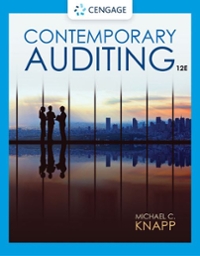Historians disagree when the first email message caromed down the information superhighway, but there is no dispute
Question:
Historians disagree when the first email message caromed down the information superhighway, but there is no dispute that email was the Internet's first "killer app." Email quickly became the primary communication medium within the business world. By 2019, an estimated 230 billion business-related emails were sent each day worldwide. On a typical day, a business professional received more than 120 emails that year.
Because of the nature of email, including its "low expectation of privacy," offhand statements made by corporate citizens that would have been quickly forgotten in the past now become forever memorialized in the digital netherworld. Even business icons such as Bill Gates have come to rue the seemingly indestructible and timeless nature of electronic messages. During the course of the historic antitrust lawsuit that the U.S. Department of Justice filed against Microsoft, Gates insisted he was unaware of abusive business practices his company had used against its key competitors.
Federal prosecutors retrieved emails Gates had sent to subordinates years earlier and then used his own words to refute that claim.
Similar to Gates, accountants, particularly those new to the profession, frequently experience "send button regret." In 2013, an accounting student at a large Midwestern university wrote an email to a female recruiter of a Big Four firm who he had met at a career fair. To help the recruiter remember him, the young man reminded her that he was the student who had sported a large "zit" on his lip.1 After dropping that crude crumb on the recruiter, the prospective employee asked her if the rigorous demands of an entry-level position with a Big Four firm would "squash" his opportunity for romantic relationships when he entered public accounting. He went on to observe that although he "liked" money, "love" was much more important to him. Not only did the young man not receive a job offer from the recruiter's firm, the three job offers he had already received were reportedly rescinded after his awkward email went viral.
Mischievous accounting graduates who land positions with Big Four firms quickly learn that high-tech pranks that might have been considered harmless fun in a college environment are deemed politically incorrect by their straight-laced, no-nonsense employers. A few years ago, the Dublin, Ireland, practice office of a Big Four firm suspended three male employees who had circulated via email photos of 13 recently hired female employees. The young men asked more than one dozen of their male colleagues to rank the women for the purpose of developing a top 10 list of the office's most attractive female new hires. The original recipients forwarded theemail to other friends and acquaintances who, in turn, forwarded the message to their friends and acquaintances, and so on and so forth. As the email raced around the globe at an increasingly rapid pace, Internet miscreants began attaching increasingly disparaging statements regarding the "contestants," comments that proved embarrassing for not only the young women but the accounting firm as well.
Questions
1. As noted in this case, email messages generally have a "low expectation of privacy." What does that phrase mean and what implications does it have for business professionals?
2. What ethical or professional standards should auditors consider when writing email messages and when communicating on social media networks? What consequences may auditors face if they violate those standards?
3. The young lady identified as "Glory" in this case was less than enthused with the work role and work environment of independent auditing. What measures should college students take to reduce the likelihood of choosing a job or professional role that is unsuitable for them?
4. Place yourself in Glory's position. How would you have communicated your decision to resign?
Step by Step Answer:






